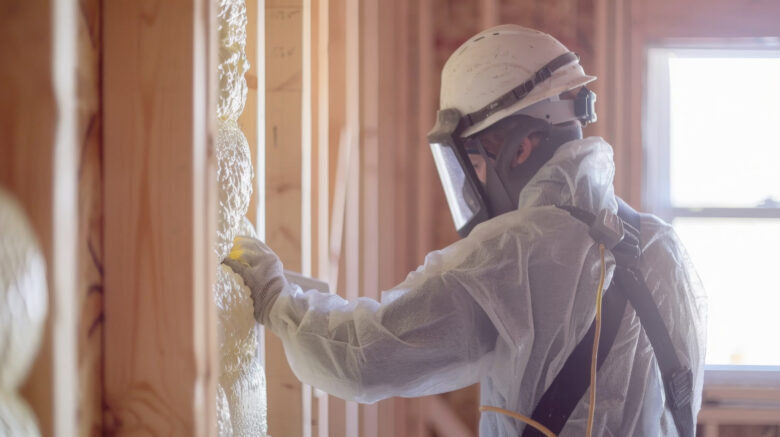
Spray Foam Insulation: Everything you need to know
In the rapidly evolving landscape of property maintenance, the demand for energy efficiency has led to an increasing interest in spray foam insulation. While it offers numerous benefits, including enhanced thermal performance, it also raises significant concerns that property owners must carefully consider. As RICS Chartered Surveyors we are dedicated to providing expert guidance on these issues, ensuring that our clients are fully informed about the implications of installing spray foam insulation.
Understanding Spray Foam Insulation
Spray foam insulation, also known as spray polyurethane foam (SPF), is a liquid material that expands upon application to create an airtight barrier. This method of insulation has gained popularity due to its ability to reach difficult areas and provide superior insulation compared to traditional materials such as mineral wool or polystyrene slabs. However, despite its advantages, spray foam insulation is not without its challenges.
The Dual Nature of Spray Foam Insulation
Spray foam insulation can be a double-edged sword. On the one hand, it offers excellent energy-saving capabilities by reducing air leaks and improving thermal performance. On the other hand, it presents several potential downsides that could impact the value and safety of your property:
- High Costs: Spray foam insulation is significantly more expensive than traditional alternatives, with costs further increased by the necessity of professional installation.
- Ventilation and Structural Issues: Poor installation can lead to reduced ventilation in roof spaces, potentially causing humidity, dampness, and even timber decay. This can compromise the structural integrity of your property, leading to costly repairs.
- Health and Safety Concerns: The installation process emits hazardous fumes, requiring a 24-hour waiting period before the area is safe to re-enter. Furthermore, the insulation may present fire risks, adding another layer of concern for homeowners.
- Impact on Property Value: Perhaps most concerning is the potential impact on property value. Many RICS Chartered Surveyors have flagged spray foam insulation as a risk during property surveys, which can affect both the ability to sell or mortgage a property and its overall valuation.
Emerging Concerns and Industry Responses
Recent developments in the property and insurance markets have exacerbated concerns about spray foam insulation. Some insurance companies now refuse to provide coverage for homes with spray foam insulation, and many mortgage lenders are hesitant to approve loans for such properties. The Royal Institution of Chartered Surveyors (RICS) has highlighted that spray foam insulation, particularly when installed improperly, can negatively affect a property’s value.
The risks associated with spray foam insulation, including its potential to trap moisture, its difficulty in removal, and its fire risk, have prompted industry experts to call for greater regulation. The Property Care Association (PCA) and the Residential Property Surveyors Association have formed a cross-industry group to support homeowners facing difficulties with spray foam insulation.
RICS Recommendations for Homeowners
RICS has issued new guidelines (spray foam consumer guide) to help homeowners navigate the complexities of spray foam insulation:
- Engage Independent Experts: Ensure all insulation work is carried out by independent professionals who are not affiliated with the installer or manufacturer.
- Conduct Regular Inspections: Regularly inspect and maintain your roof to ensure it remains watertight and free from potential issues caused by spray foam insulation.
- Perform Thermal Calculations and Condensation Risk Checks: These assessments should be done by qualified professionals to ensure the long-term safety and performance of your property.
- Avoid Unsolicited Offers: Be wary of cold-call offers for spray foam insulation and consult with a RICS Chartered Surveyor before making any decisions.
- Consult with Mortgage and Insurance Providers: Confirm their policies on spray foam insulation to avoid any surprises during mortgage applications or insurance renewals.
Conclusion
Spray foam insulation offers significant benefits in terms of energy efficiency, but it also presents challenges that require careful consideration. At Novello Chartered Surveyors, we are committed to helping you make informed decisions about your property. Whether you are considering installing spray foam insulation or dealing with the implications of an existing installation, our expertise as RICS Chartered Surveyors ensures that your property is thoroughly assessed, and your investment is protected.
Contact Novello Chartered Surveyors today to schedule a survey and gain peace of mind about your property’s future.

